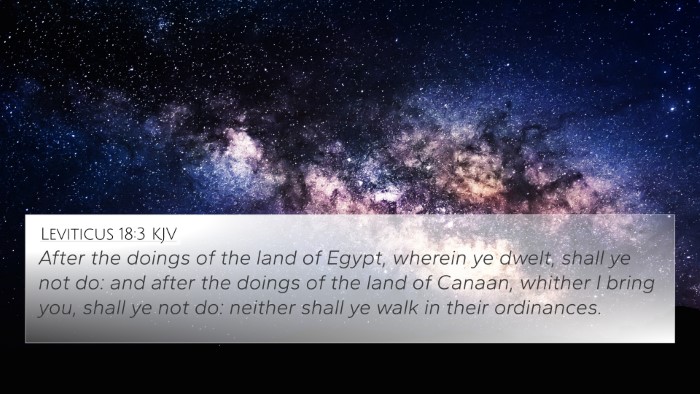Understanding Jeremiah 10:2
Jeremiah 10:2 states: "Thus saith the LORD, Learn not the way of the heathen, and be not dismayed at the signs of heaven; for the heathen are dismayed at them." This verse carries significant implications about the choices believers make in their spiritual lives and emphasizes God's guidance away from pagan practices.
Verse Meaning and Context
In this verse, God speaks through the prophet Jeremiah to warn the Israelites against adopting the customs and beliefs of surrounding nations, particularly their idolatrous practices. Jeremiah’s admonition is to avoid being influenced or frightened by signs and omens that the heathens regard as powerful or significant. By emphasizing his command to "learn not the way of the heathen," God draws a clear distinction between His people and the nations around them.
Commentary Insights
- Matthew Henry: Henry highlights the dangers of allowing worldly customs to infiltrate the faith of God's people. He argues that the "way of the heathen" refers to their superstitions and idol worship, which are starkly inferior to the worship and guidance offered by God.
- Albert Barnes: Barnes emphasizes the psychological aspect of being dismayed by celestial signs, noting that the heathens lacked true understanding and were often led astray by fear. He encourages believers to place their confidence solely in God rather than these signs, which can lead to superstition.
- Adam Clarke: Clarke provides a linguistic analysis, explaining that the "way of the heathen" encompasses all forms of misguided worship and rituals. He underscores the importance of maintaining a pure form of worship in accordance with God's commandments.
Thematic Connections
The themes within Jeremiah 10:2 resonate throughout the Bible, emphasizing God's desire for His people to trust in Him and not conform to surrounding cultures. Below are key Biblical cross-references that fortify the understanding of this verse:
- Deuteronomy 12:30-31: This passage warns against inquiring into the practices of the nations and doing things that God hates.
- Isaiah 47:13-14: This warns of the futility of relying on astrology and other occult practices indicative of pagan belief.
- Leviticus 18:3: It instructs the Israelites to avoid the practices of the Egyptians and Canaanites and to live according to God's statutes.
- 1 John 2:15-17: This New Testament teaching reinforces the idea of not loving the world or its systems, aligning perfectly with the call in Jeremiah to avoid worldly ways.
- Romans 12:2: Paul encourages believers not to conform to the patterns of this world but to be transformed by renewing their minds.
- Hebrews 12:1: This exhortation to lay aside every weight and sin resonates with the theme of not being burdened by external influences.
- Colossians 2:8: Paul warns against being taken captive by hollow and deceptive philosophy, stemming from human tradition, another echo of Jeremiah's caution.
Significance of Cross-Referencing
Cross-referencing biblical texts, as seen above, aids in understanding the broader narrative and teachings of Scripture. It allows believers to see how God's intent is consistent throughout His Word. Tools for Bible cross-referencing can include:
- Bible concordance
- Bible cross-reference guide
- Bible reference resources
- Comprehensive Bible cross-reference materials
- Cross-reference Bible study methods
Conclusion
Jeremiah 10:2 serves as a powerful reminder of the importance of remaining rooted in faith and divine teachings rather than succumbing to fear and worldly practices. Through its connections to other scriptural passages, this verse emphasizes a cohesive message about reliance on God’s wisdom over human fear and superstition.








